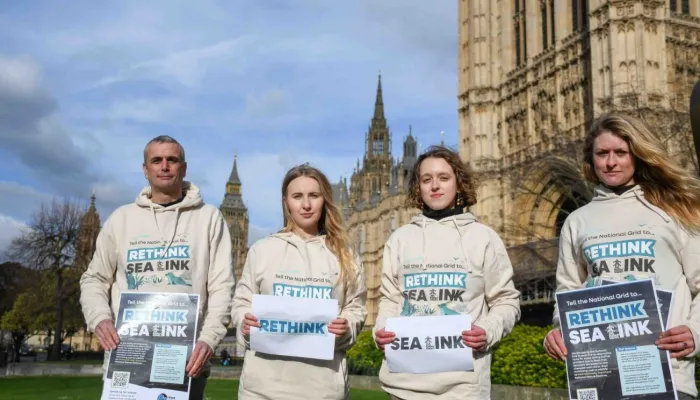In an email to a constituent this week, Ms Billington said, “I am campaigning hard to get National Grid to rethink the Sea Link project … I am concerned about the potential for this project to cause irreversible damage to nature in Pegwell Bay and Minster Marshes. The bay is home to Kent’s largest population of seals while the marshes provide a vital habitat for a variety of protected species such as the golden plover, beavers, and water vole. This is a vital wildlife corridor and nationally important ecosystem that we risk disrupting at our peril.”
Save Minster Marshes founder, George Cooper, said, “Having our local council and both local MPs speaking out about National Grid’s plans to devastate this precious habitat is so important to stopping this planned development in its tracks. We do still need everyone to continue to write to National Grid and key people who will have an influence on the final decision before this consultation period ends on 12th January. We’ll be sharing a list of who to contact and ideas of what to say later on this week in our Save Minster Marshes Facebook group and on our website. Please join our group and like and follow our new Save Minster Marshes Campaign page for the latest updates.”
We are also delighted to be working closely with Kent Wildlife Trust in asking National Grid to think again.
Emma Waller, Planning and Policy Officer, Kent Wildlife Trust said: “There appear to be several options for Sea Link, yet the current plans will cause significant disturbance to wildlife at a site with multiple statutory conservation designations that should be protected. This includes Minster Marshes, the proposed converter and substation site, which has been identified as functionally linked land, providing important foraging and roosting grounds for bird species at Pegwell Bay. Once this wildlife is lost, it is gone forever, so we would strongly urge National Grid to 'Rethink Sea Link' and consider the other options available.
“We support renewable energy, but not at the cost to wildlife, particularly when the habitats at risk of the project, such as the mudflats and saltmarsh, are already supporting us to mitigate climate change by acting as natural carbon sinks.”

